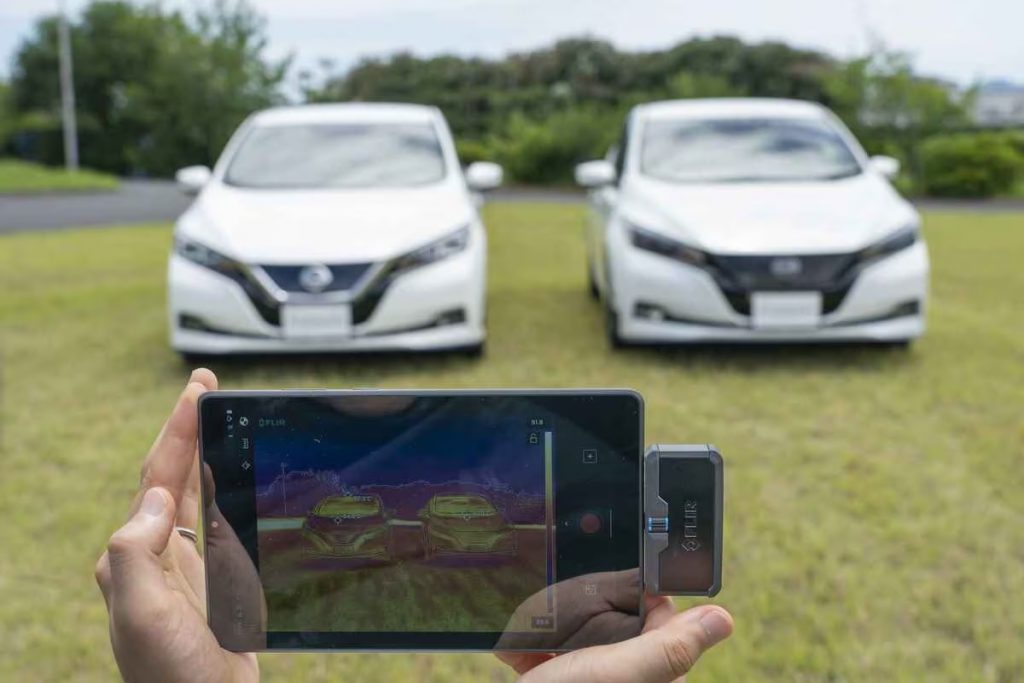このページを 日本語 で読む
Nissan Motor Company recently announced the development of a new type of paint for cars. The paint curbs excessive temperature rise in the body of vehicles in direct sunlight. Called a self-cooling paint, it radiates heat outward allowing the vehicle to "cool" itself on hot summer days. The company plan to commercialize the paint, particularly targeting commercial vehicles that often operate under the scorching sun.
Self-Cooling
The new paint was jointly developed with the Chinese company Radi-Cool. Radi-Cool deals in radiative cooling products that use metamaterials — a material technology with properties not found in nature. This development is believed to be the first self-cooling automotive paint in the industry.
According to Nissan, vehicles using the new self-cooling paint showed a maximum surface temperature reduction of 12°C compared to conventional paint. There was also a maximum of 5°C temperature decrease in the space inside the vehicle where the driver's head would be.
The company conducted experiments using the Nissan Leaf, an electric vehicle (EV). At an ambient temperature of 35°C, the paint reduced the time it took to cool the car's interior to 25°C by about 40% compared to a regular vehicle. If commercialized, the paint could help improve fuel efficiency and lower electricity consumption for EVs.
Currently, Nissan is working with Japan Airport Terminal Co., Ltd., to test the paint. ANA Airport Services at Haneda Airport is usine a commercial van painted with the new paint to verify its durability. The timing of commercialization has yet to be decided. Nissan will also aim to commercialize the paint for passenger cars upon further enhancement of the material technology.
このページを 日本語 で読む
